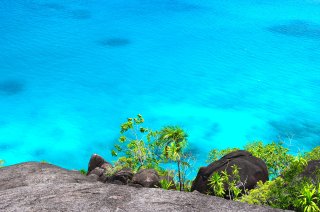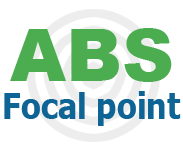
category_news
ABS and genetic resources from the Caribbean parts of the Netherlands
When asking about genetic resources from the Netherlands, users of genetic resources often refer to material from the European part of the Netherlands. However, the Kingdom of the Netherlands is larger than that and also includes island territories in the Caribbean. What is the arrangement and which ABS legislation applies where?
The Kingdom of the Netherlands and the Caribbean Netherlands
The Kingdom of the Netherlands consists of four independent countries: the Netherlands, Aruba, Curaçao and Sint Maarten, with the latter three being islands in the Caribbean. Although foreign affairs and defense are administered by the country of the Netherlands, the other three countries are autonomous, with their own parliaments and legislation. The Convention on Biological Diversity and the Nagoya Protocol were accepted by the Kingdom of the Netherlands, with the CBD having become applicable for all four countries, but the Nagoya Protocol only for the country of the Netherlands.
The country of the Netherlands itself consists of the Netherlands in Europe and the Caribbean Netherlands, with the latter consisting of three islands: Bonaire, Sint Eustatius and Saba. (the so-called BES islands) In the context of the European Union, these islands are seen as overseas territories or countries for which European Union legislation, including the EU ABS Regulation (Regulation (EU) 511/2014), does not apply.
Genetic resources from Aruba, Curaçao and Sint Maarten
The independent countries of Aruba, Curaçao and Sint Maarten have not yet installed the necessary measures to make the Nagoya Protocol applicable, so the Protocol has not yet come into force in these countries. This means that there are currently no ABS access requirements for using genetic resources from these countries.
Genetic resources from Bonaire, Sint Eustatius and Saba
The Nature Conservation Framework Act BES (Wet grondslagen natuurbeheer en -bescherming BES, in Dutch) provides for the division of roles and responsibilities between the Dutch National Government and the islands’ governing bodies. Article 14 of this Act states that the Island councils (the local government) have the authority to establish ABS rules. Bonaire, Sint Eustatius and Saba currently do not have ABS access requirements. It is the intention to establish access requirements in the future, but the modalities are still under discussion.
Other legislation may apply
Although there are currently no ABS access requirements, it is important to note that access to genetic resources from the Caribbean parts of the Netherlands may be restricted by other legislation and regulatory requirements, for instance with regard to species protection, territorial protection, and animal and plant diseases. Environmental impact rules may also apply. For instance, a permit is required for the import and export of protected animals and plants from the Caribbean Netherlands (see: ‘Trade in endangered animals and plants (CITES)’).
Information about the legislation may be available on the websites of the respective governments of Aruba, Curaçao (in Dutch) and Sint Maarten, as well as contact details for the relevant departments.
Information about legislation on Bonaire, Sint Eustatius and Saba is available on the website of the National Office for the Caribbean Netherlands (Rijksdienst Caribisch Nederland, RCN), specifically on the department of Agriculture, Nature & Fisheries’s page. For questions about this legislation, you may contact the RCN department of Agriculture, Nature & Fisheries.
Although it is not an official governmental website, the website of the Dutch Caribbean Nature Alliance (DCNA) gives an overview of policy and legislation on all six islands, as well as information on nature management organisations and where to apply for research permits. The DCNA is a nonprofit organisation created to safeguard nature in the Dutch Caribbean through supporting protected area management organisations.
Please note that the information in this article only applies if the Netherlands is the provider country of the genetic resource. In case the genetic resources are obtained from another country, access regulation of that country may apply. The ‘provider country’ is the country of origin of the genetic resource or a country that has acquired the genetic resource in accordance with the Convention on Biological Diversity (CBD).
Links
- Government of Aruba
- Government of Curaçao (in Dutch)
- Government of Sint Maarten
- National Office for the Caribbean Netherlands (BES islands)
